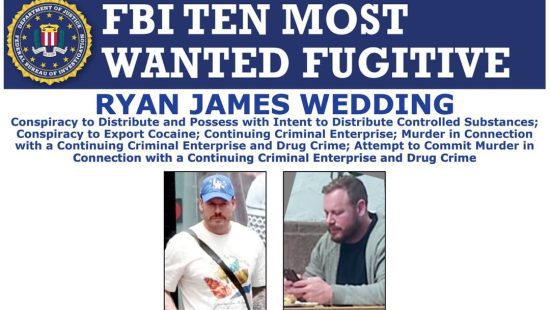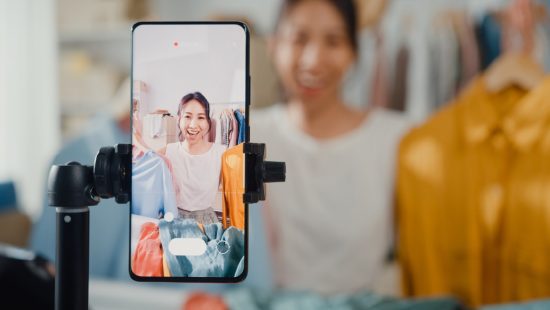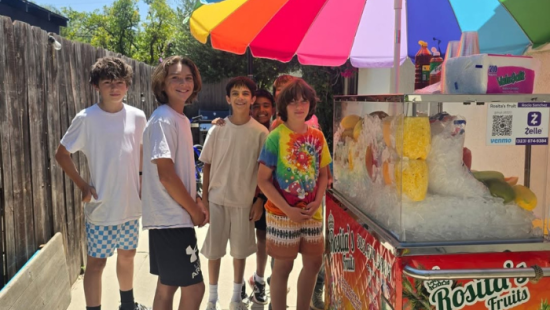“I think it’s time to harvest some of the crops. I always told myself, ‘At 50, I’ll sell everything, give my kids money, and let them do what they want,” he said.
Joaquín López sounds very serious when he explains where he was born.
“A tiny little ranch, with very few people, there were around 150 of us… We could only make up two teams, the ‘Pacifiqueros’ versus the ‘Tecateros’ (he says, referring to the Pacifico and Tecate beer brands),” and he bursts into a smile.
Joaquín’s story could be summed up as an adventure novel—a kind of Aguila Solitaria mixed with Robin Hood and the adventures of Kalimán or the Pequeño Solín. Joaquín, the owner of the Mariscos Mi Lindo Sinaloa restaurants, has the personality that characterizes many Sinaloans: a genuine laugh, sincere conversation, hardworking, and that drive where nothing seems impossible.
“If things don’t work out, you have to leave them behind and try something else,” says López, who grew up in a small community in Choix, Sinaloa.
“God has spoiled me a lot. My life hasn’t been easy, I had to fight and struggle, but here we are,” says this businessman simply, a man who once owned up to eight restaurants in the region. Now, he’s down to just three—one in Paramount and one in Glendale and Maywood.
The journey seemed hard—but not for Joaquín. Since he was little, he’d handled livestock and mules on the ranch. He was about six years old. Even though he didn’t know how to count yet, he once asked his mom to bake bread for him to sell.
His father, Isidro López, was a farmer. As the eldest of his siblings, Joaquín helped him from a young age—work was always part of his life; he was a very restless child.
“My dad grew watermelon, and I helped him. There were seasons he’d leave the ranch to work elsewhere in the state. But I always had this itch to come to the U.S. One time, a friend came to the ranch and told me how good it was over here,” he says.
At 16, he left home without telling his parents.
“I ran off from the old man,” he says. He got a job picking tomatoes and found a place to sleep. His goal was to save money to cross the border. But once he’d saved up enough, he lost his wallet—and with it, all his money—and he thought his dreams were over.
“So I went back to the ranch, scared to death. I didn’t know how my father would react. When I got there, he was planting watermelon. I stood there and he wouldn’t look at me, he was upset. You plant watermelon by digging holes every two meters,” Joaquín recalls.
After mustering some courage, he spoke to his father.
“I came to tell you I’m going to the other side,” he said.
And his father replied, “Are you telling me, or asking for permission?”
“I’m asking for money for the trip,” Joaquín answered.
He explained that he’d lost his wallet with all his savings and asked for money. Isidro just said, “How much do you need?” When Joaquín told him, he added, “Go to your mom, she’ll give it to you.”
Joaquín was stunned. He was leaving, still just a teenager, to a foreign country to start a new adventure. What he hoped for was a goodbye hug from his dad. He went to his mom, Emiliana Gastelum. His father stayed behind, crying.
The journey seemed hard—but not for Joaquín. Since he was little, he’d handled livestock and mules on the ranch. He was about six years old. Even though he didn’t know how to count yet, he once asked his mom to bake bread for him to sell.
“How many do you want?” Emiliana asked.
“Make about sixty,” he replied.
And off he went to sell them. He sold almost all of them, and was so precise with his accounting that he explained he was short two pesos and someone had taken two more. Later, he asked his mom to make other goods to sell. That’s when the successful California entrepreneur was born—though he didn’t know it yet.
Joaquín was stunned. He was leaving, still just a teenager, to a foreign country to start a new adventure. What he hoped for was a goodbye hug from his dad, Isidro López. He went to his mom, Emiliana Gastelum. His father stayed behind, crying.
“I had a childhood full of scarcity, but it was beautiful. As a kid, I wanted to be a bandit,” he laughs again. “I read a lot of stories, the popular ones—El Libro Vaquero, El Águila Solitaria, Kalimán, the one with my Pequeño Solín who used to say, ‘Patience, the mind controls everything.’”
He learned how to cross the border and helped others do it too. But one day, on a trip back to Sinaloa, he was invited to a dance at a nearby ranch, and when he arrived, he was captivated.
“I saw those eyes and thought, ‘Who is that woman?’” He couldn’t approach her that night. Later, that woman—Aurora—would become his wife.
On his first border crossing, he was with “El Gordo.” It was a wild trip—he sees it now as the journey of two goofy young guys. “I was a real ‘cabrón’,” he laughs.
El Gordo got caught by immigration. Joaquín made it to Valley Center, near San Diego.
“We went to a market to buy Bimbo bread and water. That’s where I got a temp job, and later I headed to Los Angeles,” he says.
He did all kinds of work—picking crops, landscaping, construction—eventually getting his green card.
“I worked and worked. When I had $105 saved, I sent it to my old man,” he says.
He also enjoyed spending time with friends, drinking beer, and having fun.
“I’m not someone who sets goals. If I like something, I go for it. If not, I drop it,” he adds.
In 1993, he hitched a ride to go get the woman who had captivated him.
“I stole my wife. I went straight up to her and said, ‘Will you come with me?’ Aurora’s parents had warned her: ‘If you leave, don’t come back.’”
“I took her to my parents’ house. The next morning, my dad told me, ‘We need to go fix things.’” That was how people said it when they had to talk to the bride’s family. His father handled it, they got married, and fixed her immigration status. Joaquín stayed in Sinaloa for a while working in construction.
For him, now is the time to innovate. These are tough years. Part of his clientele has disappeared. People are more cautious—they don’t want to spend as much. If they used to go to a restaurant two or three times a week, now it’s once or twice.
When he returned, he became a quality control inspector at the tortilla company La Tapatía, a job that, like many chapters in Joaquín’s life, didn’t last long and led him elsewhere.
“I sent my wife to Sinaloa, took them to Tijuana, and stayed behind drinking. When I got back, my boss said, ‘You might be a great worker, but you’re always late.’ I told him, ‘Come on, it was just two days,’” he says, laughing.
And just like that little kid who sold bread at five years old, life didn’t seem complicated. He had a Ford truck and started collecting and selling cardboard. He made $40 in two hours. He found a new way to earn a living—so much so that when offered his old job back, he said no.
“In less than two weeks, I already had $2,000. One day, God led me to a warehouse where I made $80–100 a day. Some uncles told me work was good in Atlanta, so I went—but I didn’t like it.”
Later, an acquaintance had a fish market with products from Sinaloa. He didn’t think twice. He loaded up his truck with oysters and pata de mula (giant clams) and started selling on the streets. He walked the streets, offering his seafood to people. He started building a customer base. On weekends, his wife made ceviches and seafood cocktails at home. Business was so good that eventually, he sold the seafood uncleaned—it was easier that way.
He decided to go all in.
“I looked at my numbers at my job and saw I was going backward, not forward.” He started going to Tijuana for supplies. It wasn’t legal, but he had to hustle. He began distributing to other fish markets and restaurants.
One day, he went to collect on an unpaid bill and learned the restaurant Las Playas was for sale. After thinking it over, he pulled out $1,000 and walked away with the keys. He figured he’d settle the rest later.
“I had two options: resell the restaurant or work it myself. I started remodeling,” he says enthusiastically.
“At first, my wife’s reaction was, ‘Joaquín, do you know how to count? Yes? Then don’t count on me,’” he laughs.
Later, Aurora joined him, and they worked through problems together.
On February 13, 2003, Mi Lindo Sinaloa opened.
“At first it was tough; the customers didn’t come like we hoped. Luckily, I never gave up my seafood business. That kept us afloat,” he says.
Joaquín eventually ran eight restaurants—now he has three.
“My family helps—my kids. I’ve always tried to have what others don’t. That’s part of my secret. I had turtle eggs, callo de hacha (scallops), and made seafood coconuts—things nobody else in L.A. was selling,” he says.
“I saw those eyes and thought, ‘Who is that woman?’” He couldn’t approach her that night. Later, that woman—Aurora—would become his wife.
For Joaquín, one key reason his business is loved is customer service.
“You have to get along with the regular folks. I had to build my clientele. Everything I’ve done, I don’t see it as mine. God put me in charge. I’ve never felt like I have some status,” he says humbly.
Joaquín has enjoyed every part of the journey, and now thinks about his roots.
“I think it’s time to harvest some of the crops. I always told myself, ‘At 50, I’ll sell everything, give my kids money, and let them do what they want. This shouldn’t be slavery.’ This career has been beautiful; I’ve made so many friendships,” he shares.
There are three pieces of advice Joaquín would give to those starting a business:
-Evaluate—don’t worry about competition.
-Rent the space for 3–4 months. Make sure you have money to survive.
-Don’t stop working your original job—it might save you.
For him, now is the time to innovate. These are tough years. Part of his clientele has disappeared. People are more cautious—they don’t want to spend as much. If they used to go to a restaurant two or three times a week, now it’s once or twice.
“We need new customers. We have to reevaluate our product and promote our business in different ways,” he says thoughtfully.
- Huntington Park
- Glendale
- Paramount











